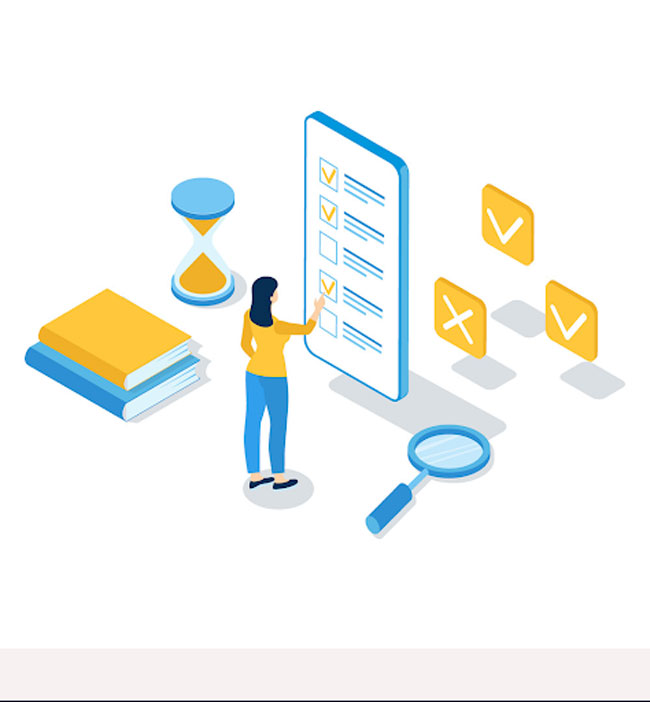IELTS Beginners: How to Start Your Journey Today
Embarking on the preparation journey can feel overwhelming for IELTS beginners. However, with a structured approach and the right resources, achieving your dream score is entirely possible. This guide by IELTS-Testpro outlines a clear roadmap to help you navigate from the basics to exam readiness.

I. Identifying your current level of English
Before diving into study materials, it is crucial to establish a clear baseline of your abilities. As an IELTS beginner, you need to honestly assess three key factors:
- Current English level: Are you starting from zero, or do you have a basic foundation?
- Target band score: Define your specific goal (e.g., 5.0+, 6.0+, 7.0, 8.0+).
- Available time duration: Determine the amount of time you can realistically dedicate each day to achieve your target score.
In order to accurately gauge your current proficiency, it is highly suggested that you complete a full-length IELTS practice test under strict exam conditions. This not only reveals your strengths and weaknesses but also gives you a practical overview of the IELTS test format. Here are two effective ways to test yourself:
- Take an online test: Utilize reputable websites or mobile apps that offer mock exams.
- Take an offline test: Visit IELTS centers to experience a simulated exam environment.
II. Road to IELTS
The path to IELTS success is best approached in stages. Skipping steps can lead to gaps in knowledge that hurt your score later on.
1. Stage 1: Reinforce English foundation
Whatever English level you are at, zero or basic, it is indispensable to bolster up your English foundation instead of jumping into practicing tests immediately.
IELTS beginners should start with:
Vocabulary
A wide range of vocabulary will be an advantage for the test-takers as it is the requirement for all skills in the IELTS exam including Listening, Reading, Writing and Speaking.
It is recommended that candidates should learn vocabulary by topic. Some typical topics in the IELTS exam are Education, Media, Crime, Business, Communication, Environment, Family, Health, Tourism, Transportation, Government, Work, Art, etc.
Additionally, IELTS beginners may find it more effortless to learn new words in phrases or collocations rather than single words only.
There are a variety of books and materials providing IELTS vocabulary such as:
- Collins Vocabulary for IELTS
- Barron’s Essential Words for IELTS
- English Vocabulary in Use
- Cambridge Vocabulary for IELTS, etc.
or you can refer to some IELTS websites or mobile apps.

Grammar
Grammar plays a vital role in the English foundation because it helps learners with reading and listening comprehension, grammatically correct sentences, and fluent speaking ability.
There exists many grammar topics but Tenses, Parts of Speech, Clauses and Sentences are regarded as key units of knowledge.
IELTS beginners can look for grammar materials in varied sources with concise, easy-to-understand theory and practice exercises such as:
- English Grammar in Use (R.Murphy)
- Cambridge Grammar for IELTS
- Collins Grammar For IELTS (Advanced)
- Destination B1, B2, C1
or you can refer to some IELTS websites or mobile apps.
Pronunciation
- Pronunciation can profoundly decide your Speaking band score, and occasionally affects your listening comprehension. Therefore, improving pronunciation can give you opportunities to maximize your IELTS band score.
- IELTS beginners should start with IPA (International Phonetic Alphabet) to get to know the exact pronunciation of words.
- Besides, imitating or shadowing has become prevalent among language learners in order to have native-like pronunciation and intonation. You can learn via video clips on Youtube, English-speaking films, music, or websites, mobile apps.
2. Stage 2: Practice
After mastering the basic English foundation, IELTS beginners should delve into the fundamental information of an IELTS exam and prepare for practicing IELTS skills.

Listening
- Listening seems to be the upper hand in boosting the IELTS overall band score. However, it is requisite for IELTS beginners to actively improve listening skill along with practicing on the basis of the IELTS format
You can apply both passive (listening anytime, anywhere without trying to understand the specific content through films, music, podcasts, radio, news, etc.) and active listening (comprehensive listening by figuring out the main content and details of the audio) to enhance listening skill on your own at home.
- In the context of working on the IELTS Listening test format, IELTS beginners had better practice in different types of questions instead of initiating taking a mock test because it can trigger discouragement.
Common question types in IELTS Listening test:
|
See more about IELTS Listening test and techniques to enhance Listening skill here: Ielts Listening
Reading
- Reading skill requires learners not only English language ability but also background knowledge due to its diverse topics such as society, history, nature or astronomy. Therefore, the more you read, the bigger chance for you to score a high Reading band. Some authentic sources for IELTS beginners to create a daily reading habit are The Guardian, ReadTheory, Readorium, Storyworld, etc.
- In terms of practicing based on the IELTS Reading format, IELTS beginners also should start with different types of questions first before going further into taking a mock test. Besides, skimming and scanning techniques together with utilizing keywords should be noticed in practicing IELTS Reading skill.
Common question types in IELTS Reading test:
|
See more about IELTS Reading test and techniques to enhance Reading skill here: Ielts Reading
Writing
Being considered to be a challenging IELTS skill, Writing requires IELTS beginners to practice as much as possible to get a target band score. In the first place, you need to write as a daily habit with notes, diary, or blogs, which benefits your fluent grammatical and lexical use. Then, it’s important to get to know the IELTS Writing format with various question types and topics.
There are two tasks in an IELTS Writing test:
Task 1:
- IELTS General Training: Letters (formal, informal and semi-formal)
- IELTS Academic: Reports (line chart, bar chart, pie chart, mixed charts, table, map, cycle-process)
Task 2:
An essay in response to an argument, a problem, or point of view:
+ Argumentative / Opinion / Agree & Disagree
+ Advantages – Disadvantages
+ Discussion
+ Causes and Effects / Causes and Solutions / Problems and Solutions
+ Two-Part Questions
with copious topics such as social media, nature, family, communication, museum, space, etc.
- It is recommended that IELTS beginners should read as many sample answers from IELTS experts, teachers, or learners as possible to learn useful vocabulary, collocations, phrases, sentences used in certain contexts, or even correct their own mistakes. Also, preparing a template for each topic (IELTS Writing Task 2), or type (IELTS Writing Task 1) is advantageous.
See more about IELTS Writing test and techniques to enhance Writing skill here: Ielts Writing
Speaking
With the basic English foundation including Vocabulary, Grammar, and Pronunciation, IELTS beginners can begin to practice IELTS Speaking. Firstly, try to immerse yourself in English (speak in English anytime you can) to improve your reflex ability. Then, it’s time to practice speaking with different topics.
IELTS Speaking test has three parts:
- Part 1: Introduction: several questions about yourself and familiar topics such as home, family, study, work, and interests
- Part 2: Long turn: a particular topic
- Part 3: Discussion: further questions related to the topic in Part 2
Some frequent topics appearing in IELTS Speaking: Work, Study, Hometown, Transport, Hobbies, Family, Films, Media, etc.
Recording yourself, then listening again to correct your mistakes is a suggested way to upgrade your Speaking skill. Furthermore, asking others to give feedback is also another solution.
See more about IELTS Speaking test and techniques to enhance Speaking skill here: Ielts Speaking
3. Stage 3: Test
The final step is to test yourself with a mock test or a like-actual test. Some websites or mobile apps or IELTS centres can give you opportunities to take a test and identify your current IELTS band score.

III. Why should you choose IELTS Test Pro for your IELTS journey?
IELTS TEST PRO is a mobile app that enables IELTS learners to experience an entire journey with the combination of Vocabulary, Grammar, Listening, Reading, Writing, and Speaking.
- Vocabulary
Compiled in four skills respectively, the Vocabulary section can help IELTS beginners with an easier way to approach the IELTS focus vocabulary without any bewilderment. On top of that, you can learn vocabulary with flashcards – one of the most effective ways to learn new words.
- Grammar
The Grammar section focuses on key units of knowledge namely Tenses, Parts of Speech, Clauses and Sentences, which assists IELTS beginners in obtaining the most basic and useful grammar for the IELTS exam. Besides, multiple choice questions with all-inclusive theory related to each topic can give learners learn and review at the same time.
- Listening & Reading
Abundant Listening and Reading tests divided into separate sections (Listening – 4 sections) and parts (Reading – 3 parts), IELTS beginners can practice with different questions types. Listening and Reading tips are included for a more productive journey.
- Writing & Speaking
Designed in the form of references with multiple model answers collected from IELTS experts, teachers, and learners can give IELTS beginners learn from both useful vocabulary, collocations, phrases, sentences used in certain contexts, and learners’ mistakes that will be highlighted in each sample. Writing and Speaking tips are also mentioned in the app.
So, let’s install IELTS TEST PRO and start your IELTS Online exam journey now!